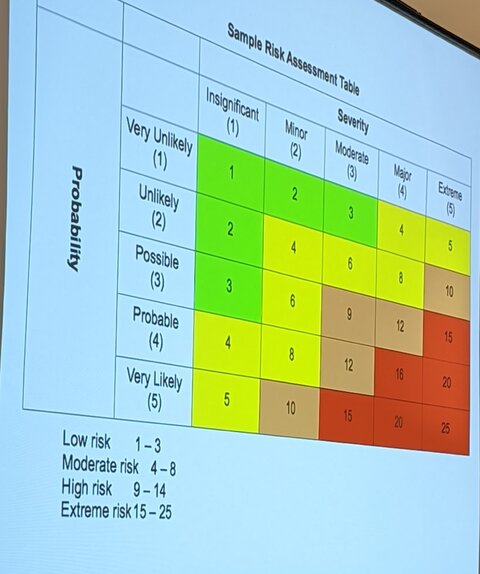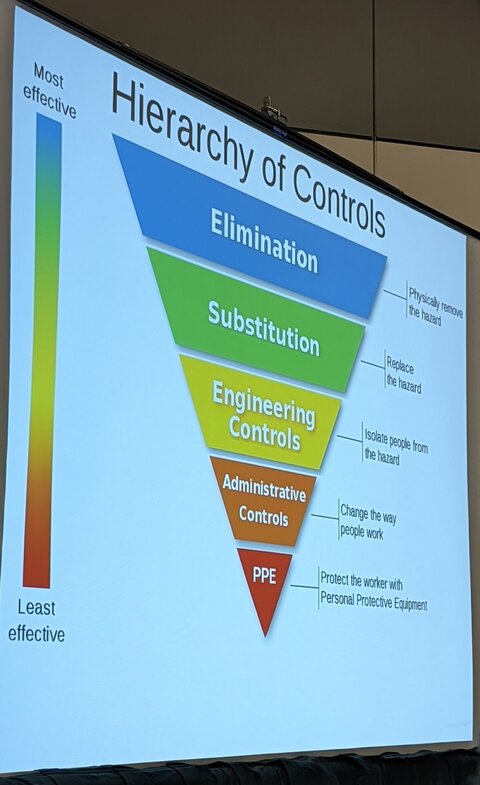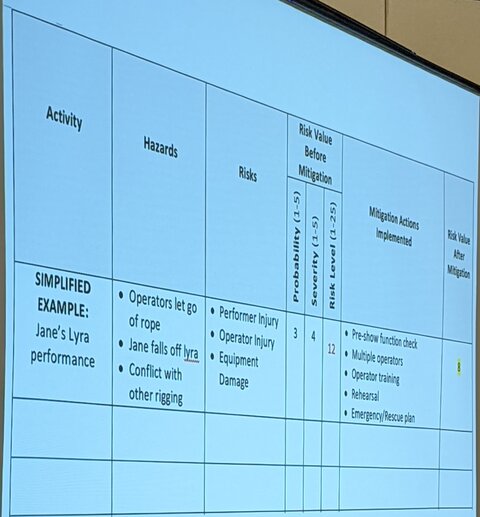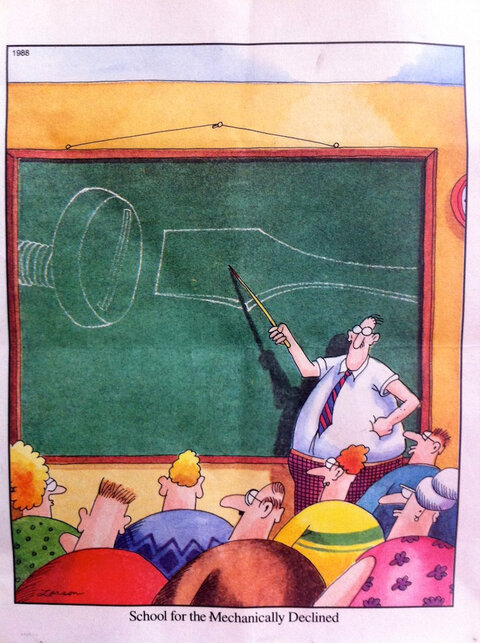I attended a great conference session titled Risk Assessment is for Everyone with Eddie Raymond, Jonathan Drill, and Bill Sapsis.
It was a great session. I'll post my thoughts and some snapshots of slides from the presentation.
There was a great discussion of assessing risk based on the two questions :What is the likelihood of the risk occurring? What is the severity of the danger? Here's an example of a grid you can use to assess the risk of something.

The thing that struck me the most was the discussion of the chart below. PPE should be your LAST line of defense against a risk. But our industry often sees it as the first. We should begin with finding ways to Eliminate or substitute for the danger. Can you engineer a safe way to work around the danger? Administratively can you alter how people work around the threat to make it safer (assign two people to lift the heavy crate). Finally we resort to PPE last. We are pretty good about wearing harnesses these days, but we should be looking for ways to redesign the situation to make it so the harness is not necessary.
A few random thoughts and quotes from the discussion:
Ask yourself, "What could possibly go wrong?" and act upon that. Every major disaster in this industry had multiple potential points where someone could have said, What could go wrong and done something to prevent it. But that didn't happen.
"A risk assessment" as a document is basically useless. It needs to become a cultural practice to be useful.
Take the risk assessment and use it to plan for how to handle things when the threat does go wrong. Then repeat the cycle. Searching for new risks.
We need to do personal risk assessment. You are responsible for your own safety. You have a right to say no. You need to draw lines and not cross them for your own safety.
Here's an example of a full risk assessment chart.

It was a great session. I'll post my thoughts and some snapshots of slides from the presentation.
There was a great discussion of assessing risk based on the two questions :What is the likelihood of the risk occurring? What is the severity of the danger? Here's an example of a grid you can use to assess the risk of something.

The thing that struck me the most was the discussion of the chart below. PPE should be your LAST line of defense against a risk. But our industry often sees it as the first. We should begin with finding ways to Eliminate or substitute for the danger. Can you engineer a safe way to work around the danger? Administratively can you alter how people work around the threat to make it safer (assign two people to lift the heavy crate). Finally we resort to PPE last. We are pretty good about wearing harnesses these days, but we should be looking for ways to redesign the situation to make it so the harness is not necessary.

A few random thoughts and quotes from the discussion:
Ask yourself, "What could possibly go wrong?" and act upon that. Every major disaster in this industry had multiple potential points where someone could have said, What could go wrong and done something to prevent it. But that didn't happen.
"A risk assessment" as a document is basically useless. It needs to become a cultural practice to be useful.
Take the risk assessment and use it to plan for how to handle things when the threat does go wrong. Then repeat the cycle. Searching for new risks.
We need to do personal risk assessment. You are responsible for your own safety. You have a right to say no. You need to draw lines and not cross them for your own safety.
Here's an example of a full risk assessment chart.

Last edited:



